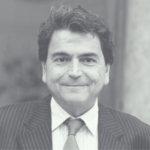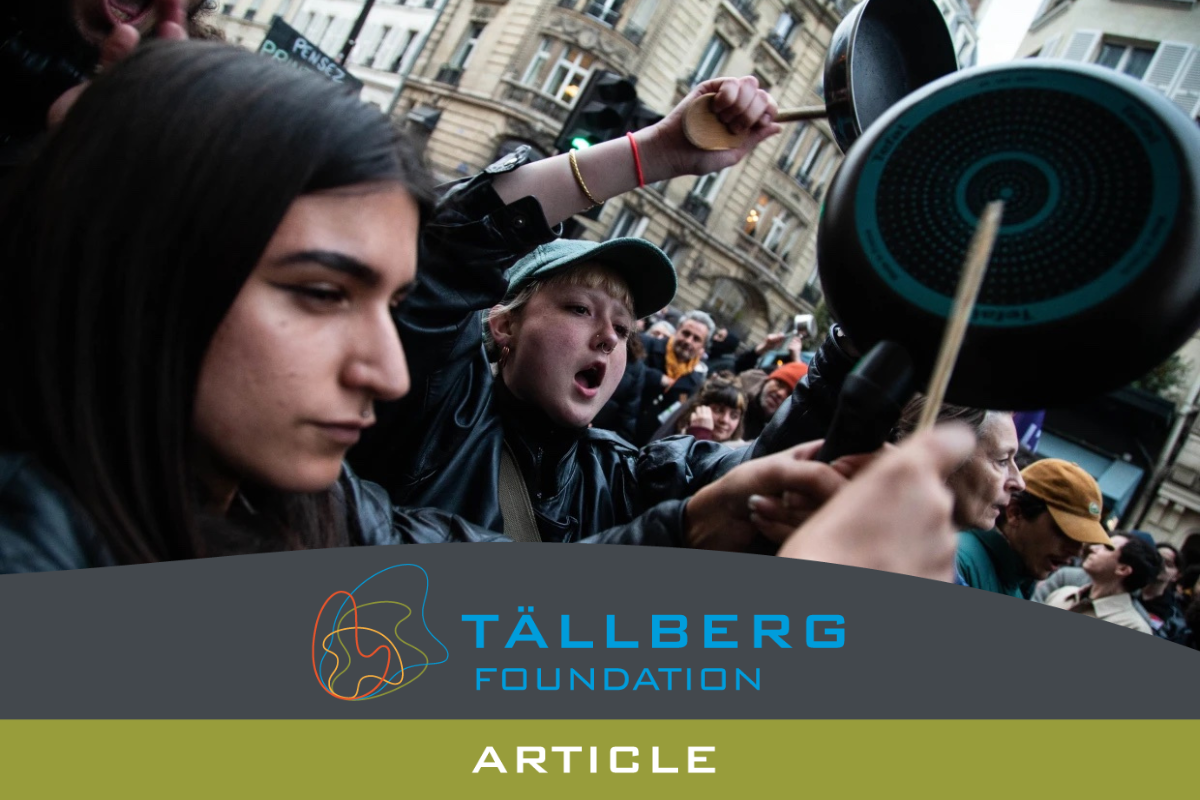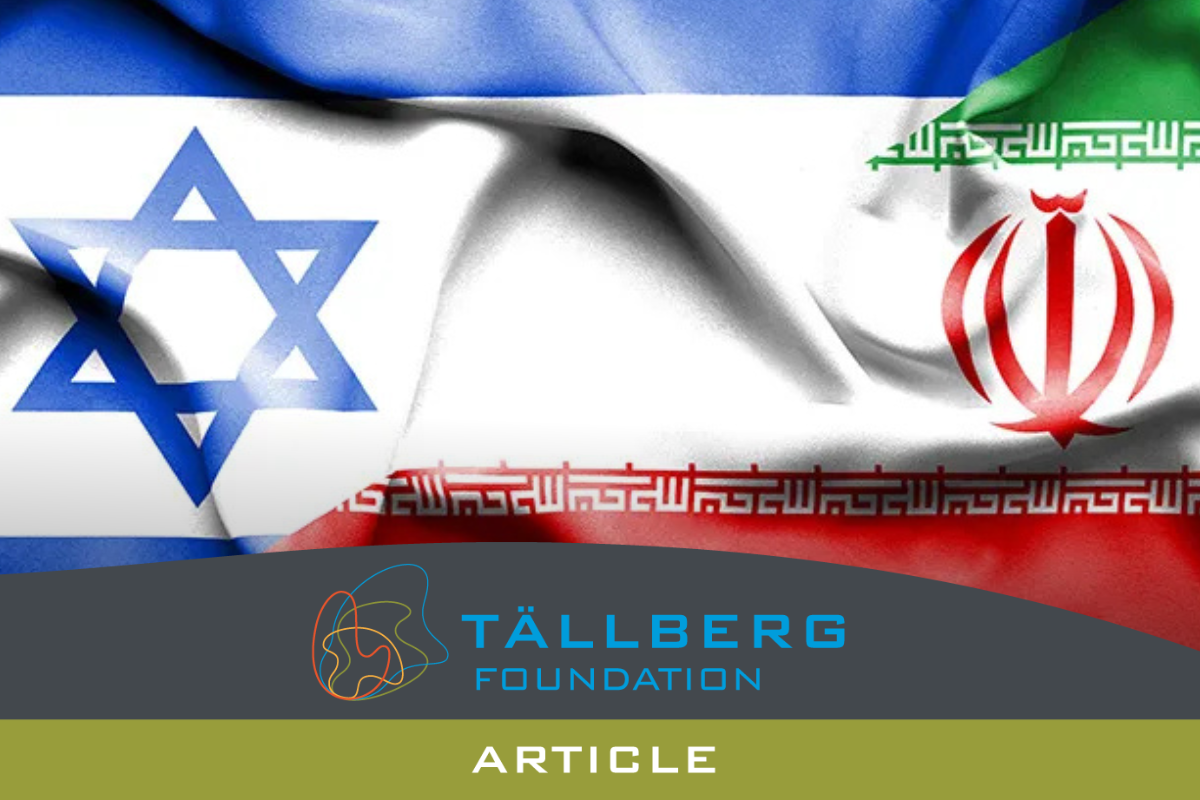French President Emmanuel Macron has had a rough few months. Weeks of sometimes violent protest against pension reform that he eventually imposed by fiat. Deep criticism across Europe and from the United States for his efforts to distance himself from America’s China policy. Plummeting political approval ratings. Most recently: the casserolade as protesters take to banging pots and pans to drown out his speeches and those of his ministers.
Is the problem France or is it Macron?
For Pierre Lellouche, former cabinet minister in the government of Nicolas Sarkozy and long-time parliamentarian, it is Macron. “He was elected only because people didn’t want Marine Le Pen as president. There was a very high abstention level; presidential election was 30% abstention and the legislative election more than 50% abstention… He doesn’t have a majority in the House. He has profound rejection in the streets. And this pension reform, which was badly organized, has turned a social problem into a crisis of legitimacy for the executive branch and for the President himself.”
Lellouche, in a recent New Thinking for a New World podcast continued, “He should be very careful about that, because there are still four years to go, and nobody knows how he can run those four years. Of course, he’s pretending now that pension reform is behind him…But whether he can move on to any other subject is a big issue. I doubt it. The only chance he has is that there is no alternative. The Right is in shambles. The Socialist are in shamble. The only guys left in town are the extreme left and the extreme right. That is his survival capital. He survives on the extremes, and that’s not healthy for the country.”
The problem, at least as Lellouche describes it, is that the President is too much a technocrat and too little a politician. “He is not a politician. He has no roots in the country, and his parliamentarians have no roots in the country…What is Macronism? What’s it all about? Nobody knows. It’s a big mystery. It’s all a function of his personal brilliance.” He points out that Macron had never run for political office before he was elected president in 2017. However, somehow he understood that the political system, divided right from left, was “fatigued” and that he could offer something different. He ran an “American-type campaign: highly liberal and highly European” with McKinsey consultants helping to plot the course. And, of course, he was blessed to be running against Marine Le Pen who could be caricatured — and, perhaps, was — as an old-line Communist.
What is Macron’s vision? “Personally, he’s really a Europeanist. He probably believes that France is too small now, compared to the global challenges. He dreams of a Europe that would be a big France, independent from rising blocs…It’s a vision of a Europe that would be sort of independent technologically and economically, and essentially non-aligned — one of the blocs of the next world system.”
There is coherence to that worldview, but is it realistic? In Lellouche’s view, absolutely not. “I think it’s a lot of hot air… Europe is too weak technologically. It is too dependent on the dollar and on the extra-territoriality of American law. And much too dependent on American military power for its security.” He goes on to argue that “Europe is not the United States of America, and it will never be. It is a combination of independent old nations, who put together some of their sovereignty. But that does not create a unified power.”
Nonetheless, President Macron has secured a place on the world stage. He actively courted President Putin during the run-up to the Russian invasion of Ukraine, recently grabbed headlines around the world when he visited President Xi in Beijing, travels incessantly outside France, and has probably run up a larger telephone bill than most other heads of state. Lellouche, however, is deeply critical of the results. “If you look at the balance sheet of Macron on foreign policy, frankly it is tragic. In all my years working on these issues, I have never seen France subjected to so many slaps in the face in such a small amount of time. We’ve been expelled from Africa by a bunch of dictators supported by the Russian Wagner Group. We’ve been expelled from the Pacific by AUKUS (Australia, UK, US) via the cancellation of the submarine deal in Australia in a very nasty way. We have made fools of ourselves with Putin in Ukraine. And now we’re calling for neutrality in Taiwan, creating havoc, not just in America, but in Europe as well.”
The reference to Taiwan invokes Macron’s recent tête-à-tête in Beijing with Xi. On the one hand, Macron reportedly tried to engage the Chinese as potential negotiators to end the war in Ukraine; on the other hand, Macron declared that Europe needed to separate itself from America’s growing confrontation with China. Lellouche criticizes both.
“Even though the Chinese are not militarily allied to the Russians, they are their friends, and they are—with the Russians—undertaking a major global strategy to diminish the weight of the Americans and the global Western system…Expecting the Chinese to suddenly force the Russians to end the war was a complete miscalculation. And assuming they did, of course, Putin would never accept to concede to the Chinese and look like he’s their vassal. So that was a dead end.”
To Lellouche, the attempt to distance Europe from the United States on Taiwan, and more broadly China, was even more bizarre. “It’s an impossibly incoherent policy…Macron is super Atlanticist when it comes to Ukraine. He’s all in favor of Ukrainian victory, all in favor of following American leadership in Europe. At the same time in the Pacific, he’s implying that it is the U.S. confrontation policy with China which may lead to Chinese overreaction, and that we don’t want to be caught in that.”
Lelluche quotes Macron as saying, “The question Europeans need to answer is, is it in our interests to accelerate a crisis on Taiwan? No, the worst would be to think that we Europeans must become followers on this topic and take our cue from the U.S. agenda.” He imagines that was music to Xi’s ears who “wants Europe to be, as far as possible, distanced from the United States.”
Lellouche doesn’t pretend to know how the Macron story will end. But he recalls when he was a cabinet minister and an earlier pension reform effort was opposed by millions of angry people in the streets. “I always remember President Sarkozy telling his ministers around the table, ‘Remember, we’re in a country where they like to cut off the heads of kings.”
Plus ca change, plus c’est la meme chose.
Can President Macron have it both ways—with the US on Ukraine and against the US on China? Tell us what you think in the comments section on our website.
***
Listen to the full conversation between Pierre Lellouche and “New Thinking for a New World” host Alan Stoga here.
ABOUT OUR GUEST
 Pierre Lellouche holds a doctorate from Paris and Harvard Law School. He was a co-founder of the French Institute for International Relations (IFRI), a practicing lawyer as well as a columnist in a variety of French and international media.
Pierre Lellouche holds a doctorate from Paris and Harvard Law School. He was a co-founder of the French Institute for International Relations (IFRI), a practicing lawyer as well as a columnist in a variety of French and international media.
Since the early 1990s when he became Jacques Chirac’s diplomatic adviser, he served 5 terms in the French National Assembly, and twice as a Minister (Europe and Foreign trade). Other appointments include President of NATO Parliamentary Assembly, special Representative for Afghanistan and Pakistan, French Negotiator for ITER (thermonuclear fusion).
He is now an Associate Partner with Agora Strategy Group (Munich), and a Columnist for Marianne Magazine and French TV network CNews.
Pierre Lellouche is the author of many books and articles on international affairs. His latest book is ”Une guerre sans fin”, 2016.





0 Comments